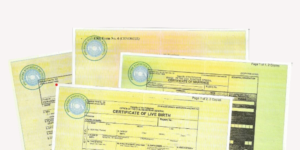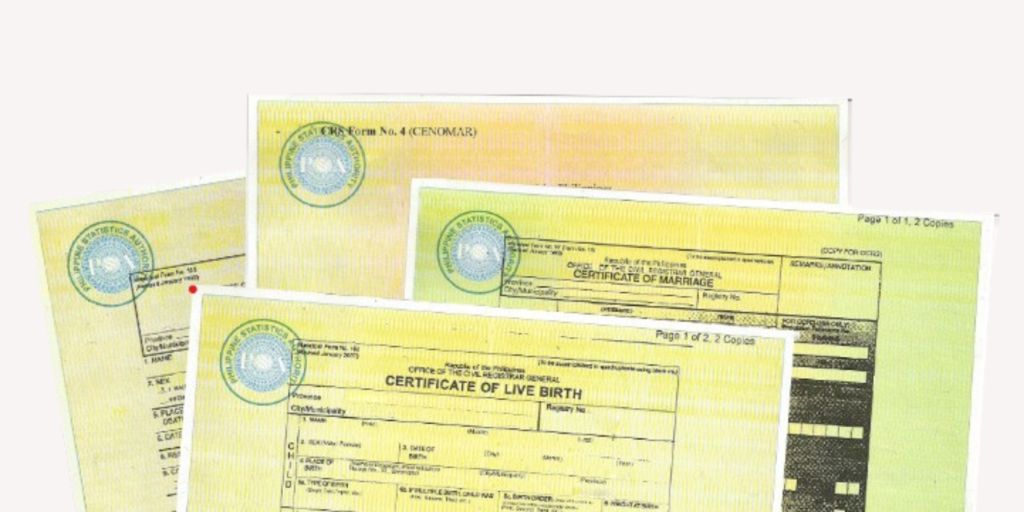What is an Estate Tax?
As the saying goes, there are only two constants in your life, “tax and death.”
Imagine inheriting a property from a loved one, only to discover that you can’t take full ownership until you’ve settled the estate tax. An estate tax is the tax imposed on the assets, including properties, bank accounts, and other holdings, left behind by the decedent/s. The Estate Tax is paid to the Bureau of Internal Revenue (BIR) before the proof of ownership on the properties are transferred to the heirs. The Estate Tax has to be paid within one (1) year from death. Failure to do so will merit a penalty from the BIR. There are instances that the BIR penalties may even be higher than the value of the property left behind by the decedent/s.
With this, many families find themselves overwhelmed by this financial burden, especially when large amounts of unpaid taxes have accumulated over the years. This can lead to delayed property transfers, legal complications, and in some cases, the loss of inherited assets.
To help families manage this challenging situation, the Philippine government introduced the Estate Tax Amnesty, a financial relief program that allows heirs to settle outstanding estate taxes at a significantly reduced rate. This amnesty not only offers a lower tax rate but also waives penalties and interest, making it easier for heirs to resolve estate tax issues and fully inherit the property left to them.
The Gist of Estate Tax Amnesty
The Tax Amnesty Act signifies that taxpayers are given a one-time grant to settle their tax obligations emanated from outstanding and unpaid tax liabilities with reasonable reliefs.
Coverage of the Estate Tax Amnesty
Republic Act No. 11213, better known as the “Tax Amnesty Act of 2018”, was signed on February 14, 2019, covers the estate, with or without assessments validly issued and emanates unpaid or accrued estate tax, of a decedent/s who died on or before December 31, 2017. It aims to encourage taxpayers to settle their estate tax obligations by offering a lower tax rate and waiving penalties, surcharges, and interest.
Estate tax amnesty extension
The Estate Tax Amnesty Program under Republic Act (RA) 11213 was originally set to end on June 14, 2021, two years after its effectivity on June 15, 2019, as specified in Revenue Regulations No. 6-2019, the Implementing Rules and Regulations (IRR) of RA 11213.
However, due to the challenges brought about by the COVID-19 pandemic, which caused disruptions in government operations and made it difficult for taxpayers to complete the necessary documents and comply with requirements, the government decided to extend the deadline until June 14, 2023 under Republic Act No. 11956.
Estate tax amnesty extension 2025
But before the expiration of the extension period of amnesty program pursuant to RA No. 11956, which lapsed into law on August 5, 2023, the period to avail of the program was further extended for another two (2) years – until June 14, 2025. In addition to extending the deadline, Republic Act (RA) No. 11956 also broadened the scope of the Estate Tax Amnesty Program. It now includes the estates of individuals who passed away on or before May 31, 2022, whether or not an assessment has been issued, as long as the estate taxes remained unpaid or became due as of May 31, 2022. This expansion provides relief to more taxpayers who were previously ineligible under the original terms.
RA No. 11956 also specifies the required documents that must be submitted to the Bureau of Internal Revenue (BIR) to avail of the amnesty, streamlining the process for applicants. Furthermore, it allows taxpayers to pay the estate tax in installments over a two-year period from the due date, without incurring any civil penalties or interest. This added flexibility is intended to ease the financial burden on heirs, making it easier for families to settle their estate tax liabilities and transfer ownership of inherited properties without facing significant financial strain. The expanded coverage and more lenient payment terms reflect the government’s commitment to providing equitable solutions for taxpayers dealing with estate-related concerns.
With regard to coverage, however, there are exceptions to the general rule – this is pursuant to R.A. 11569, following RR No. 17-2021 – which will be stated below:
Delinquent Estate Tax liabilities that are deemed final and executory and liabilities covered by the Tax Amnesty on Delinquency such as undeclared estates or properties that are not subject to estate taxes and etc.;
Properties involved in cases pending in their appropriate courts such as:
Falling under the jurisdiction of the Presidential Commission of Good Government;
Involving unexplained or unlawfully acquired wealth under R.A. No. 3019, otherwise known as the Anti-Graft and Corrupt Practices Act, and R.A. No. 7080 or an Act Defining and Penalizing the Crime of Plunder;
Involving violations of R.A. No. 9160, otherwise known as the Anti-Money Laundering Act, as amended;
Involving tax evasion and other criminal offenses under Chapter II of Title X of the National Internal Revenue Code (NIRC) of 1997, as amended; and
Involving felonies of frauds, illegal exactions and transactions and malversation of public funds and property under Chapters III and IV of Title VII of the Revised Penal Code.
The basis and rate imposed on each decedent’s total net taxable estate shall be six percent (6%) at the time of death of the decedent without penalties incurred during every stage of transfer. This is provided that the minimum Estate Amnesty Tax for the transfer of the estate to each decedent is at five thousand pesos (P 5,000.) – to simply put, the 6% amnesty rate is imposed on the net estate of a decedent, where in determining the net estate, deductions on the value of the gross estate at the time of the decedent’s death are allowed.
For the valuation of the Gross Estate
Real Properties – the higher value exhibited in the values fixed by the city assessors between the zonal value and the fair market value.
Shares of Stock – For unlisted shares of stock, the preference and common shares shall follow its book value and its par value, respectively. For listed and traded shares of stock, it can be either a) the valuation shall be the price at the time of death, or b) the mean computed between the highest and the lowest quotation at the date nearest to the decedent’s death.
Personal Properties – the Fair Market Value (FMV) at the time of the decedent’s death.
Requirements for Estate Tax Amnesty
To take advantage of the Estate Tax Amnesty, heirs or estate administrators must submit a set of documents to the Bureau of Internal Revenue (BIR). These documents differ depending on whether the estate includes general requirements or specific properties like real and personal assets. Here’s a breakdown of the necessary documents:
General mandatory requirements
Certified True Copy (CTC) of death certificate;
Duly validated Taxpayer Identification Number (TIN) of the estate and heir/s;
CTC of marriage certificate;
Original certificate of residency;
Original Deed of ExtraJudicial Settlement or court order on the distribution of property;
Notarized promisory note in case of claims against the estate arising from contract of loan (*if any);
Proof of the claimed property previously taxed;
Proof of the claimed transfer of public use (*if applicable)
Additional Requirements for Real Properties (Land, Houses, and Buildings)
CTC of the transfer/original land or condominium certificate of title (TCT or CCT);
CTC of the tax declarations over the real property and over the improvements issued at the time of death or the succeeding available tax declaration issued nearest to the time of death of the decent (*if none is available at the time of death);
Certificate of No Improvements (*if applicable);
Location plan/vicinity map if zonal value is not readily determinable
Additional Requirements for Personal Properties (Bank Accounts, Investments, Vehicles)
Certificate of Deposit/Investment/Indebtedness owned by the decent individually or with another;
Certificate of Registration of vehicle and/or other proof showing the value;
Stock certificates with evidence of book value;
Proof of valuation of shares of stocks at the time of death;
Proof of valuation of other types of personal property
Take note, if an authorized representative will process the application of estate tax amnesty;
A duly notarized original Special Power of Attorney (SPA) must be submitted, and/or;
A Sworn Statement for heirs designated as executor/administrator
If the documents were executed abroad, it must be certified by the Philippine Consulate or apostilled.
Availment of the Estate Tax Amnesty
Prepare the Necessary Documents:
Death Certificate of the decedent.
Taxpayer Identification Number (TIN) of the decedent and heirs.
Proof of estate ownership, such as land titles, bank statements, and other relevant documents.
Estate Tax Amnesty Return (ETAR) and the Estate Tax Acceptance Payment Form (ETAPF).
Other documents needed
Compute the Estate Tax:
Calculate the 6% tax on the net estate value. The net estate value is the total value of the estate minus allowable deductions.
File the ETAR and Submit Documents:
File the ETAR and submit the necessary documents to the BIR Revenue District Office (RDO) where the decedent was last registered.
Pay the Estate Tax:
Pay the computed estate tax at any Authorized Agent Bank (AAB) or other payment channels approved by the BIR.
Secure the Electronic Certificate Authorizing Registration (eCAR):
After processing, the BIR will issue a eCAR, which serves as proof that the estate tax liabilities have been settled under the amnesty program. eCAR for real and personal properties is issued separately included in the estate.
Place and Time of Filing:
CLASSIFICATION | PLACE OF FILING |
Non – Resident Decedent | Revenue District Office (RDO) where such executor/administrator is registered or is not yet registered, at the executor/administrator’s legal residence. |
Non – Resident Decedent with no executor/administrator in the Philippines | RDO No. 39 – South Quezon City |
Resident Decedent | RDO having jurisdiction over the last residence of the decedent |
Failure to submit the necessary documents in availing the Estate Tax Amnesty shall be subject to the applicable estate Tax rates plus interest, penalties and surcharges.
With the new Estate Tax Amnesty Program, its implementation surely attracts and encourages taxpayers to avail its offered components. Not only does the program give leeway for payment but it also frees up the heavy burden that may arise from penalties emerging from unsettled and unpaid tax obligations and liabilities. In conclusion, this will also give the government a great chance to collect taxes without negatively affecting taxpayers – in turn, arriving at a great opportunity to raise the economy when needed.
Sounds Overwhelming? It doesn’t have to be!
FileDocsPhil provides end-to-end assistance in transferring land titles in the Philippines, making the process easier and more convenient, including settling your estate tax. We gather and organize the necessary documents, assist in valuing your estate for accurate tax computation, and manage the filing and submission of forms to the BIR. We also facilitate payments through authorized banks and secure the eCAR, ensuring your tax obligations are fully settled. Once completed, we assist in the smooth transfer of property titles to the heirs, providing a seamless, efficient service so you can focus on securing your inheritance without the hassle.
Let FileDocsPhil Do the Work!
Need further information and assistance in settling Estate Tax? Talk to our team at FILEDOCSPHIL to know more about the requirements and process. Call us today at (+63) 917 149 2337 or send an email to info@filedocsphil.com or simply message us through the live chat for more information.







